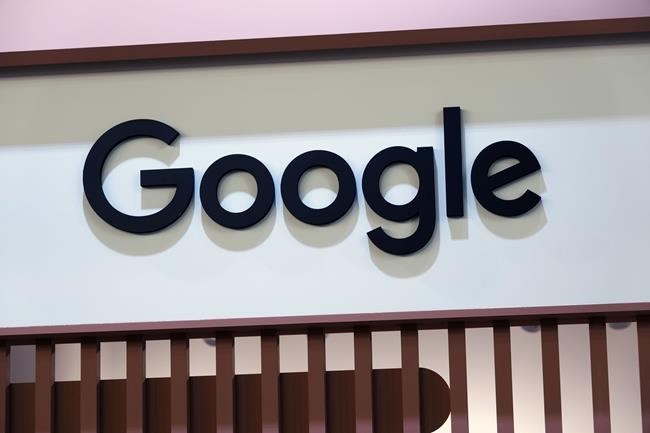OTTAWA — Advocates for the print and digital media industry are pushing back against Google, which they believe is bullying Canadians by limiting access to online news as part of a fight with Ottawa.
"Canadians are going see this as a foreign company that is bullying Canadians, and I don't think that this is going to go over well," said Paul Deegan, president for News Media Canada, which represents hundreds of publications across Canada.
Google confirmed on Wednesday that it is blocking access to online news for less than four per cent of its Canadian users, in what the company describes as short-lived test in response to the Liberal government's Online News Act.
Bill C-18 would require digital giants such as Google and Meta, which owns Facebook and Instagram, to negotiate deals to compensate Canadian media companies for displaying or providing links to their news content.
Larger media companies have praised the bill as a way to create a level playing field against Google and Facebook, which compete with them for advertising dollars. Tech companies have pushed back against the bill, arguing it is the wrong approach to enhance journalism.
"Ad revenues that used to be the mainstay of local journalism, big tech now profits from that journalism, but hasn't paid for it," said Peter Julian, House leader for the New Democrats, on Thursday.
"The era where big tech can work with no social responsibility as part of their business plan is over."
When Australia introduced a similar law in 2021, Meta temporarily blocked news from Facebook.
Meta has previously threatened to make that move in Canada, but the company said Thursday it has not made any changes to its services in this country "at this time."
The company has said it does not make significant money from news content.
Deegan said he spoke with publishers in Australia who warned this could happen in Canada, too.
"The feedback we've had from the Australians is that Google will be involved in a lot of sabre-rattling prior to the act coming in. But once it's the law of the land, they're a responsible corporate citizen, and they behave," said Deegan.
On Wednesday, a spokeswoman for Canadian Heritage Minister Pablo Rodriguez had also suggested that Google was using intimidation.
"This didn't work in Australia, and it won't work here because Canadians won't be intimidated. At the end of the day, all we're asking the tech giants to do is compensate journalists when they use their work,'' spokeswoman Laura Scaffidi said in a statement Wednesday.
Rodriguez has argued the bill will "enhance fairness'' in the digital news marketplace by creating a framework and bargaining process for online behemoths to pay media outlets.
During Google's test, affected users will see limited access to Canadian news.
The test is also affecting some Android users who use the Discover feature on their phone, which carries news and sports stories.
All types of news content are being affected by the test, which will run for about five weeks, the company said. That includes content created by Canadian broadcasters and newspapers.
The company said it runs thousands of tests each year to assess any potential changes to its search engine.
FRIENDS, which advocates for public broadcasting in Canada, said the move by Google shows why the government needs to regulate major tech companies.
"Google seems to have forgotten the old adage that with great power comes great responsibility. Instead of co-operating with lawmakers around the world to support and sustain the free press and democracy, Google continues to pursue financial ends at all costs," said Marla Boltman, executive director of FRIENDS.
"This is not capitalism. It is greed."
This report by The Canadian Press was first published Feb. 23, 2023.
———
Meta funds a limited number of fellowships that support emerging journalists at The Canadian Press.
Mickey Djuric, The Canadian Press



